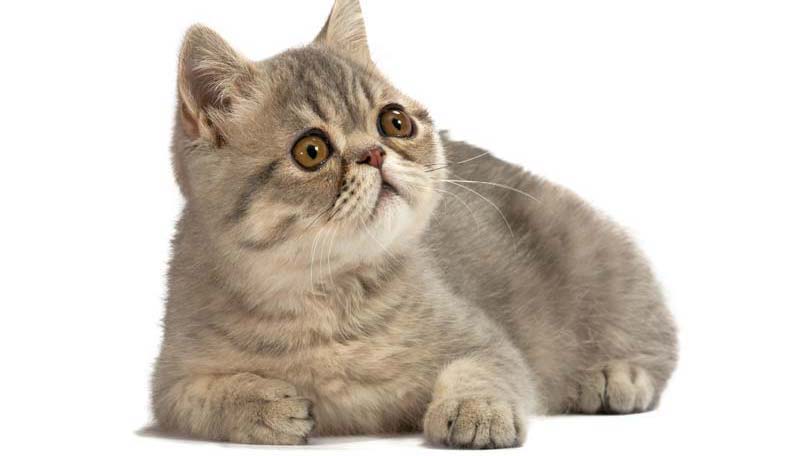
Kittens feed on their mother’s milk for a certain amount of weeks after being born so that they can get the proper nutrients necessary to grow strong and move into the next stage of their lives. The mother’s milk is a special condensed milk called colostrum, which contains antibodies to help fight disease. It is also very high in essential proteins.
The mothering process can sometimes be confusing to a human who has never owned a cat that has given birth to kittens in their home. The average cat owner doesn’t know much about how cats communicate with each other, especially a mother to its children. It is uncanny how a mother cat is able to teach her young basic principles such as how to use the litter box and how to clean themselves in such a short amount of time. One question that many new kitten owners have is, when can kittens be weaned? Weaning is when you take the kittens off of the milk and start feeding them solid foods. It is a gradual process that requires some patience. Here are a few indications that it is time to start adjusting your new kittens to their new diet of dry cat food and meats.
Number of Weeks
Normally, kittens will need to be weaned once they reach four weeks. Experts suggest that you slowly introduce solid foods into their diets by mixing soft meat with hot water so that it is easily chewed at four weeks. Don’t make the mistake of mixing the food with cow’s milk—cow’s milk is not the same as cat’s milk and should not be given to kittens under any circumstances. It is hard to digest and can actually make them sick. The kittens will most likely still feed from their mother from time to time. Then at six weeks they move onto soft meat without the hot water, and even less milk from their mother. Finally at eight weeks they should be fully transitioned to solid foods with no assistance form its mother. Any kitten that is still exclusively demanding its mother’s nipple at 10 weeks of age or older should be checked by a vet to make sure that there isn’t something more serious going on. This cat may need an intensive training program to assist in its transition to solid foods.
When the Kittens Develop Teeth
Cats break down their food with their teeth, which are specially designed to tear meat. The teeth consist of twelve small teeth in the front that are called incisors—six on top, six on the bottom—four “fangs” which are formally called canines, ten premolars which are excessively sharp, and four molars. The fangs are what cats use to rip the meat off of their prey, in the case of a wild or feral cat that is, and the premolars grind and cut the food up into tiny pieces.
At birth, newborn kittens do not have teeth to chew food, which is why they have to suck their food from their mother. But once you see the beginnings of teeth forming in their mouths, they will soon be able to chew solid foods. At four weeks, kittens will begin to form what are called deciduous or “milk” teeth. When they reach six weeks all 26 of their milk teeth should have come in. By 30 weeks a kitten’s deciduous teeth will all fall out, and are replaced with 30 permanent teeth. Once their deciduous teeth have grown to maturity, you know that it is time to start feeding them solid foods.
When Their Mother Gets Nasty
The kittens have been nursing for weeks, and one day the mother starts getting nasty. She swats at them whenever they try to even come near her nipple. If they persist, she may allow them to eat for one more day in peace, but the next it is even worse. Eventually, the mother is just not having it—she will soon refuse the kittens milk because 1) she knows it’s time for them to grow up and start looking for their own food and 2) nursing them is starting to become painful for her.
So a good answer to the question of “when can kittens be weaned?” is when their mother starts snapping at them. A good rap upside the head will certainly register to her kittens that they need to move on. She knows what’s best, better than anyone, for her kittens.
When Their Mother Leaves
Kittens that are born outdoors are closely guarded by their mothers for the first few weeks of their lives. They are placed in a secure location where they cannot be seen by humans and other potential enemies. This is because the mother knows that they will need to get their proper nutrition before being ready to face the sometimes cold and harsh world.
When the mother starts leaving the “nest” for extended periods of time, that is a clear indication to the hungry kittens that they should start looking for their own food. Once they reach a certain age, they will start exploring the area on their own and seeking foods other than their mother’s milk. A cat’s instincts are strong—they know what they will want to eat. Meat and protein. A lucky feral cat will come upon a nice family that may “sponsor” it by feeding it on a daily basis. Other cats will prowl the wilderness for field mice, birds, and other prey. Again, in this situation they learn how to hunt from their instincts and their mother, who will most likely still be an active part of their lives. Feral cats usually stick together in groups to find food.
The question of when can kittens be weaned can easily be answered by counting weeks or by looking to the mother of the kittens for guidance. Examining the kittens for signs of growth will also give you an indication that they can be weaned off their mother’s milk.
